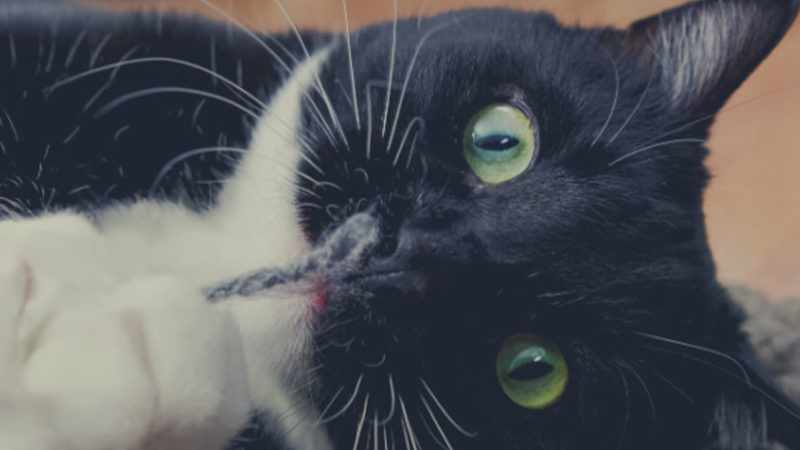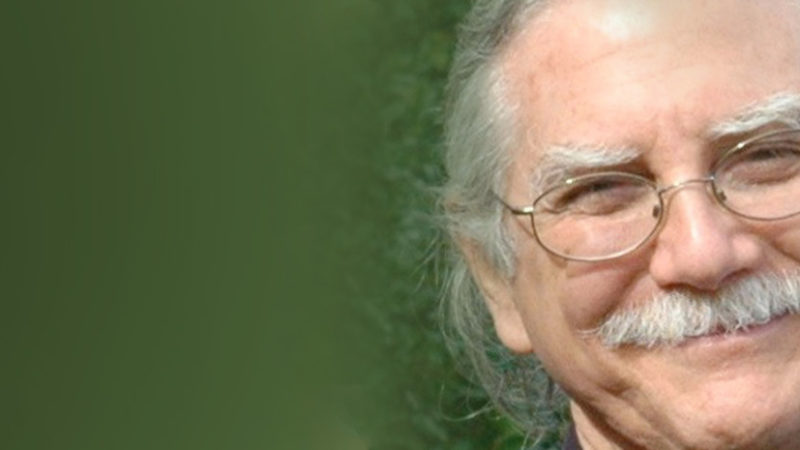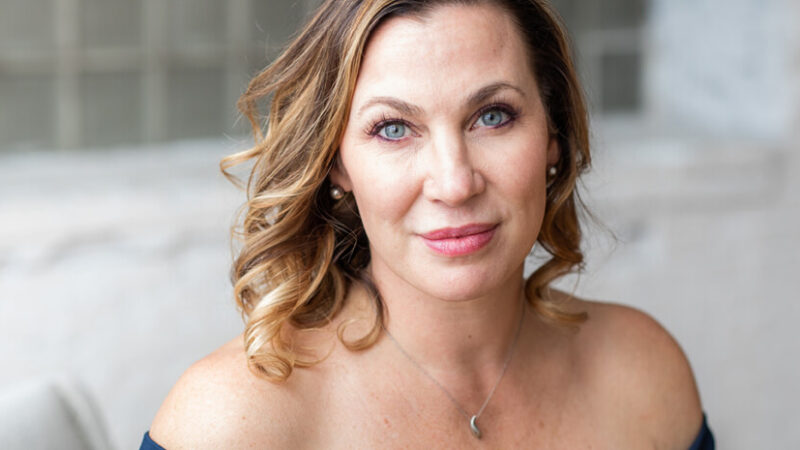-
E91: Allowing Life to Remove Your Blockages
Michael Singer — July 2, 2025
The foundational flaw in human behavior is the belief that "I'm not okay." What follows is the...
-
Cyndi Dale: Becoming Your Own Best Ancestor
Cyndi Dale — July 1, 2025
On the surface, it appears as though the lives we live proceed forward moment by moment in a...
-
Honey Tasting Meditation: Build Your Relationship with Sweetness
There is a saying that goes “hurt people hurt people.” I believe this to be true. We have been...
Written by:
Amy Burtaine, Michelle Cassandra Johnson
-
Many Voices, One Journey
The Sounds True Blog
Insights, reflections, and practices from Sounds True teachers, authors, staff, and more. Have a look—to find some inspiration and wisdom for uplifting your day.
Standing Together, and Stepping Up
Written By:
Tami Simon -
The Michael Singer Podcast
Your Highest Intention: Self-Realization
Michael Singer discusses intention—"perhaps the deepest thing we can talk about"—and the path to self-realization.
This Week:
Cyndi Dale: Becoming Your Own Best Ancestor -
Many Voices, One Journey
The Sounds True Blog
Insights, reflections, and practices from Sounds True teachers, authors, staff, and more. Have a look—to find some inspiration and wisdom for uplifting your day.
Take Your Inner Child on Playdates
Written By:
Megan Sherer
600 Podcasts and Counting...
Subscribe to Insights at the Edge to hear all of Tami's interviews (transcripts available, too!), featuring Eckhart Tolle, Caroline Myss, Tara Brach, Jack Kornfield, Adyashanti, and many more.
Most Recent
Theresa Reed: Monkey Mind
They say that animals often come to resemble their owners. Or maybe it’s the other way around. I am not sure where that statement came from, but I would probably say there is a nugget of truth to it. Perhaps we do become more like our critters, or more likely, we simply learn from them.
A decade ago, my husband and I adopted a little black cat from the local shelter. As soon as they plopped him in our hands, he began to purr like a motor. We bundled him up, took him home, and named him Monkey.
This name seemed to fit him much better than his original moniker, Phantom. Monkey wasn’t a cat who liked to hide away, and he wasn’t very stealthy either. Instead, he was restless, animated, and liked to play rough. Always in movement, he could barely sit still long enough for a picture. He’s got a true “monkey mind.”
I hate to admit this, but in a way we’re a lot alike.
Like Monkey, I am easily distracted. I blame this on my Gemini ways, but the truth is that’s not an excuse for having too many projects running at the same time with all the technology in the world clamoring for my attention. The blips and dings that alert me that I’ve got mail or texts or other such things keep me in a state of high alert. “What’s happening? What’s going on?” Or, more accurately, “What did I miss?”
Like a pinball whizzing around the flippers and bumpers, my brain is in constant motion. Sometimes I’ve found myself amazed that I was able to get anything done at all.
My writing sessions were punctuated by petting sessions, and cooking a meal required one hand on the spatula while another held a laser pointer to keep Monkey from biting my heels. Disruption via feline was a way of life around my house, so, as you can imagine, it wasn’t easy for a focus-challenged person like myself to remain present much of the time.
One day, I was tapping away on the computer when I noticed Monkey staring down a bug. He was poised to pounce, eyes wide, and completely still. The bug wasn’t moving. Neither was Monkey. This was a total showdown between cat and bug—and neither was going to move until the time was right.
Fascinated, I stopped what I was doing to watch this duel unfold.
The stare-down continued for a few minutes. This cat wasn’t going to flinch until he witnessed a glimmer of activity. Finally, I saw a flicker of movement as the bug slowly lifted his leg. Monkey’s eyes widened as he wriggled his bottom. Suddenly he pounced on the hapless bug, and in an instant, it was over. The bug was lying face up, with no sign of life. Monkey sniffed around it for a second, then sauntered away. The job was done and now it was time for a nap in the sun.
I found myself pondering this long after the deed was over.
How could this cat, who detests the house rules and who seems to be in constant squirm motion, remain so deeply engrossed? How is it that Monkey was able to deftly finish his work while I sat at my desk, still stuck on finding the first opening sentence for my latest project?
The truth was staring me in the face as the little familiar beep that alerted me to an incoming text pulled me away from my work.
I had created a maelstrom of technology and distraction around me. This was preventing me from effectively “killing the bug.” If I was going to be prolific, effective, and calm in both my work and my spiritual practice, I needed to set myself up for success. It was time to commit to making my world distraction-free so I could tame my own monkey mind.
This is an excerpt from a story written by Theresa Reed and featured in The Karma of Cats: Spiritual Wisdom from Our Feline Friends, a compilation of original stories by Kelly McGonigal, Alice Walker, Andrew Harvey, and many more!
Theresa Reed has been a professional, full-time tarot reader for more than 25 years. A recognized expert in the field, she has been a keynote presenter at the Readers Studio, the world’s biggest tarot conference, and coaches tarot entrepreneurs via numerous online courses and her popular podcast, Talking Shop. Theresa lives in Milwaukee, Wisconsin. For more, see thetarotlady.com.



Michael Singer: Living From a Place of Surrender
Michael Singer is a spiritual teacher, entrepreneur, and the bestselling author of the spiritual classic The Untethered Soul. He has collaborated with Sounds True to release the online course Living from a Place of Surrender: The Untethered Soul in Action. In this episode of Insights at the Edge, Tami Simon speaks with Michael about the core idea of his teachings: that it is only through complete surrender to the essence of the moment that we experience life’s full potential. They talk about what this sense of surrender actually means when it comes to decision-making and day-to-day activities, as well as how to recognize when we are still clinging to resistance. Michael explains how to take a “witness position” and let go of the arbitrary attachments that inhibit surrender. Finally, Tami and Michael discuss the application of these ideas to those things we truly value, including bringing the idea of surrender to social and environmental activism. (63 minutes)
Topophilia: A Love and Appreciation for Where We Live
Topophilia
Rewilding allows you to see your environment with new eyes, sometimes as if for the very first time. You become more intimate with all its life-forms and sometimes see beyond the visible, connecting with a greater spirit, or presence. In his book The Nature Principle, Richard Louv discusses “place blindness,” which afflicts people who live so much of their lives indoors or in front of screens that they do not look up to see the land they live on. As with a psychological state such as inattentional blindness or perceptual blindness, these people do not perceive what is right in front of them, whether that is a horizon, a rock, a landscape, or a tree. Whether they are overwhelmed, overstressed, or preoccupied by other stimuli, in effect they become sealed off from the elements, the seasons, and the real world of the living earth, and they lose out on the benefits of a vibrant and reciprocal relationship with nature.
Because place blindness inevitably leads to a disconnection with the living earth, it also leads to a lack of caring and interest in the planet’s well-being. Future generations will not value and care for the earth if they have little or no actual relationship with it. People will not work to reverse climate change if they are so rarely outside that they have no embodied experience of its reality. So how do we overcome place blindness? We embrace mindfulness and take it outside with us. The more time we spend out on the land, exploring and learning about the different plants and animals, the natural history and ecology, and simply enjoying and getting to know the contours of the living earth, the more bonded we’ll feel to the places we call home. The more intimate we become with the land, the more we’ll grow to love and cherish it. The word land can be a vague, general term, but as you get to know a place, you discover its individuality, its individual trees, stones, birds, and landmarks. Walking along a favorite trail as the months and years go by, I watch little saplings grow. As you walk, I encourage you to bring your full, penetrating awareness to the reality of life as it is. This kind of intimacy with place is as natural as can be. We’ve lost it only in the last hundred or so years. But we can get it back and be enriched again.
Some call this love of land topophilia. Every spot on a map has a unique quality and personality. Bioregionalism is a movement that seeks to understand the watersheds, geography, ecology, natural history, human history, and other layers of knowledge that make up the richness of a place. Climate change compels us to become more bioregional so that we can address some of the nasty repercussions of a society crumbling under the compounding costs of extreme weather events, food production problems, mass migrations, rampant pollution, and social strife.
Stewardship begins with you and me.
Tips for Overcoming Place Blindness
- Walk outside. Whether you live in a populated neighborhood or in a more isolated area, walk outside every day. While you walk, open your senses, connect with your breath, and pay attention to movement on the land and in the sky.
- Become an amateur naturalist. Learn about the trees, plants, animals, insects, and other features of the land where you live. Use field guides to learn what trees grow near your home. Learn about the wild edibles that grow near you. Pay attention to the birds. Are there watersheds nearby? Where does the water flow from? Where does it flow to?
- Join local organizations that support the land. Make friends with local conservation, land management, and other environmental organizations that are active in your area. Perhaps there are walking or hiking groups, foraging clubs, craftspeople, or other groups you can learn and explore with.
- Limit your screen time. When you are outdoors, set a strong intention to experience the earth directly through your own senses. Silence your phone and put it away. Resist the urge to capture everything with a picture and instead take mental pictures of what you see. Practice letting go of the need to document every experience. See if you can reconnect with what it is like to experience life. Slow down and notice, as if for the very first time.
This is an excerpt from Rewilding: Meditations, Practices, and Skills for Awakening in Nature by Micah Mortali.


Customer Favorites
Terry Gaspard: Successful Committed Relationships—Wh...
Terry Gaspard is a licensed couples therapist, college professor, and the coauthor of Daughters of Divorce. She has teamed with Sounds True to publish The Remarriage Manual: How to Make Everything Work Better the Second Time Around. In this episode of Insights at the Edge, Tami Simon speaks with Terry about the sometimes surprising factors that go into a healthy long-term relationship. Citing years of experience counseling couples, Terry explains that physical chemistry is less important to the life span of a relationship than you might think. Tami and Terry explore how to healthily navigate relationship conflict and the steps you can take to ensure open communication of emotional needs. They talk about healing after a relationship ends and how to evaluate whether you’re ready to enter another long-term partnership. Finally, Terry and Tami discuss the stress of being a stepparent and the resilience needed to weather fresh relationship challenges. (64 minutes)
When Grief Lands with Love
Join Sounds True’s founder, Tami Simon, in this compassionate podcast with Dr. Sherry Walling about her new book, Touching Two Worlds, as they discuss navigating the duality that exists on the opposite spectrums of our lives, the healing practice of writing about our experiences of grief, overcoming the stigma and silence around suicide, the just-world hypothesis and how traumatic events change our view, accepting limitations in life while taking responsibility for finding our own sense of meaning, accessing a sense of calm and grace to release the unresolved shock of grief, finding closure versus finding the place “where grief lands with love,” and more.
The Integral Operating System – with Ken Wilber
Upgrade the Way You Think—and Live
Are you ready to ramp up the performance of your human hardware? If so, then welcome to Version 1.0 of Ken Wilber’s The Integral Operating System.
No, it’s not computer software. It’s a course that crystallizes Ken’s lifelong investigation into the truths of Eastern and Western thought into a cutting-edge tool for sparking a revolution of your mind and spirit.
Ken Wilber has spent more than three decades creating an all-embracing vision that incorporates the best elements from all of humanity’s spiritual and scientific traditions into a model that reveals even deeper levels of truth—the Integral Map. Now, this profoundly versatile tool has been formatted into a multimodal “platform for the soul,” one that you can self-install to accelerate the growth of your spiritual evolution, intellect, relationships with others, and even your physical health.
As one of the most influential figures of human spiritual development, Ken Wilber has been called the “Einstein of consciousness.” Here is an unprecedented chance for you to “download” this remarkable thinker’s teachings as he illuminates the intricacies of The Integral Operating System.






